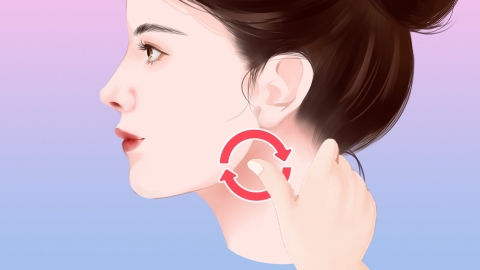How to treat category 3 thyroid nodules
Generally, category III thyroid nodules may be caused by excessive or insufficient iodine intake, long-term emotional anxiety and tension, Hashimoto's thyroiditis, subacute thyroiditis, thyroid adenoma, and other factors. It is recommended to seek timely medical attention, identify the underlying cause, and improve the condition under a doctor's guidance through general treatment, medication, surgery, and other approaches. A detailed analysis is as follows:

1. Excessive or insufficient iodine intake: Iodine serves as the raw material for synthesizing thyroid hormones. Abnormal intake may interfere with thyroid function and promote nodule formation. Dietary adjustments are necessary—those with excessive iodine intake should reduce consumption of kelp and nori, while those with insufficient iodine should moderately consume iodized salt. Regular monitoring of urinary iodine levels helps maintain balanced iodine intake.
2. Long-term emotional anxiety and tension: Negative emotions affect the endocrine system, leading to disordered thyroid hormone secretion, which may stimulate thyroid tissue proliferation and nodule formation. In daily life, stress should be relieved through activities like exercise and listening to music, emotional stability should be maintained, sleep patterns should be regular, and熬夜 should be avoided to minimize endocrine fluctuations.
3. Hashimoto's thyroiditis: Chronic thyroid inflammation caused by abnormal autoimmunity leads to long-term inflammatory stimulation, resulting in thyroid tissue proliferation and nodule formation, often accompanied by abnormal thyroid function. Patients should follow medical advice to use medications such as levothyroxine sodium tablets, selenized yeast tablets, and thyroid extract tablets to regulate thyroid function, and undergo regular follow-up assessments of thyroid function and nodule size.
4. Subacute thyroiditis: Viral infection causes acute thyroid inflammation, and nodules may remain after the inflammation subsides, accompanied by neck pain and fever. When pain is evident, medications such as ibuprofen sustained-release capsules, indomethacin enteric-coated tablets, and naproxen sodium tablets may be taken under medical guidance to alleviate symptoms. Most cases improve gradually as the inflammation resolves.
5. Thyroid adenoma: Benign adenomas form as a result of abnormal proliferation of thyroid follicular epithelium and are common benign thyroid lesions, some of which may develop into category III nodules. If the adenoma is small and asymptomatic, regular ultrasound follow-up is sufficient. If the adenoma enlarges and compresses surrounding tissues, thyroid adenoma excision may be performed to remove the affected tissue and prevent further progression.
In daily life, excessive fatigue should be avoided, a light diet should be maintained, and intake of spicy and irritating foods should be reduced. More fresh vegetables and fruits should be consumed. Regular thyroid ultrasound and function tests should be conducted as directed by a physician to dynamically monitor nodule changes and maintain thyroid health through scientific management.






